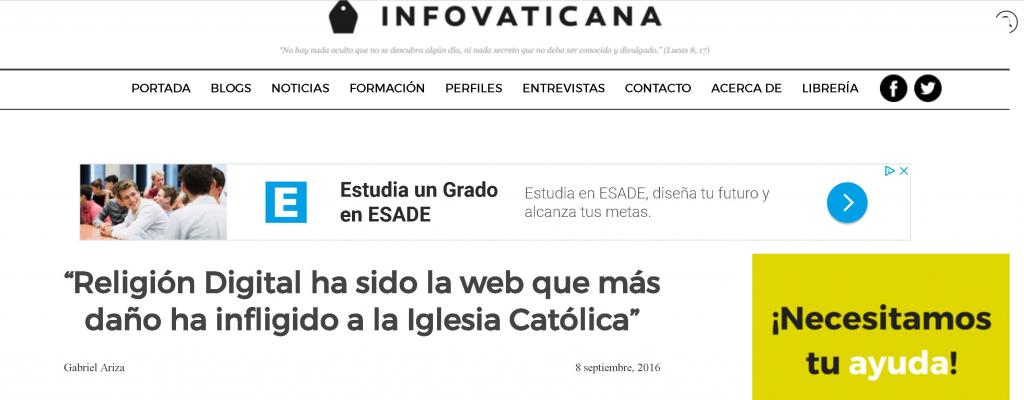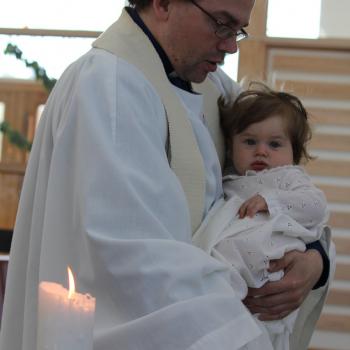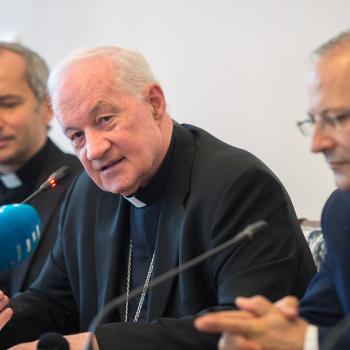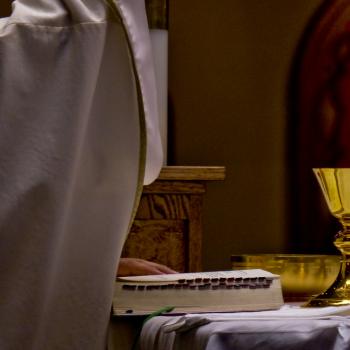
The Associated Press has this Tuesday taken up the story of the Holy See’s supposed attempt to silence the ultraconservative Spanish Catholic website Infovaticana. The news agency notes that the Vatican move against Infovaticana is just one of “hundreds of actions” taken by the Holy See since 2009 “to protest the use of the Pope’s image and [that of] the Holy See in everything from souvenirs sold at monasteries and university logos to the marketing materials of foundations and business organizations”.
“So far, Spain’s trademark office has taken the Vatican’s side” in its dispute with Infovaticana, says AP, after that authority ruled last year that the website had infringed copyright by featuring the gold and white colors of the Vatican flag and the crossed keys of St. Peter in its masthead. Now the dispute between the Holy See and the website centers on the very use of the name Infovaticana, in what Vatican spokesman Greg Burke says “is not a matter of ideology or freedom of expression, but one of officialdom”. Infovaticana founder Gabriel Ariza rejects that claim and chalks the controversy down to a “political witchhunt”, saying that “we have already taken down previous logos and other vestiges that can relate us to the Vatican, but they just want to shut us down”.
How ironic, then, that Infovaticana should have spent years now trying to shut down the rival Spanish religious news website Religión Digital (full disclosure: a publication for which I work). Though Ariza’s stated mission of “serving the Church” by “defending it from its enemies” might seem to be an uncomfortable fit for a website that purports to offer “info” – let alone journalistic rigor – what is more unbelievable is the amount of energy he and his colleagues waste in trying to fit Religión Digital into this category of adversary of the Church, when our website’s stated aim is to support Pope Francis and his magisterium. Even the language Infovaticana uses is totally inappropriate – or worse, hardly Christian – as reveals a sample of the insults Ariza and his colleagues have fired off at us:
– “The business model of Religión Digital is the nearest thing to a pyramid scheme”
– “Religión Digital, the website that harbors all kinds of blasphemies while being financed by the Church”
– “Religión Digital is the website that has done the most damage to the Catholic Church”
– “Religión Digital has become one of the Church’s biggest problems”
– “The anti-Church website Religión Digital…”; “a website specialized in attacks on the Church”
And so it goes on and on, with Infovaticana continually pressuring various Church organizations to give up their sponsorship of Religión Digital and, at least on one occasion, actually achieving that objective.
I am not in favor of censorship, by any means, but not only has Infovaticana infringed Vatican copyrights – at least on the basis of the decision of the Spanish trademark office – but it has also fallen short of the Pope Francis brand of mercy and the search for free discussion. Time then for Infovaticana to change its tune or risk not only Vatican ostracism but complete irrelevance among the faithful.

















